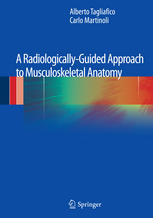

Most ebook files are in PDF format, so you can easily read them using various software such as Foxit Reader or directly on the Google Chrome browser.
Some ebook files are released by publishers in other formats such as .awz, .mobi, .epub, .fb2, etc. You may need to install specific software to read these formats on mobile/PC, such as Calibre.
Please read the tutorial at this link: https://ebookbell.com/faq
We offer FREE conversion to the popular formats you request; however, this may take some time. Therefore, right after payment, please email us, and we will try to provide the service as quickly as possible.
For some exceptional file formats or broken links (if any), please refrain from opening any disputes. Instead, email us first, and we will try to assist within a maximum of 6 hours.
EbookBell Team

4.7
16 reviewsFor many healthcare professionals, musculoskeletal diseases represent the "bread and butter" topic after graduation. Therefore, radiological education in respect of the musculoskeletal system is vital in ensuring adequate patient management and cost-effective use of healthcare financial resources. This book illustrates the clinical anatomy of the musculoskeletal system by means of images obtained using commercially available imaging equipment and the three main imaging techniques employed today – magnetic resonance imaging, computed tomography, and ultrasound. Based on an integrated multimodality approach, each anatomical region is presented with a special focus on clinically relevant anatomical details and the characteristic findings observed in patients referred by physicians. With almost 450 images and illustrations, A Radiologically Guided Approach to Musculoskeletal Anatomy is intended as a bridge from a standard anatomical atlas to diagnostic imaging. It will assist in the everyday interpretation of imaging studies of the musculoskeletal system, providing prompt answers to frequently encountered questions. Clinical notes and self-assessment modules are also provided. All who wish to learn more about the role of diagnostic imaging of the musculoskeletal system will find this book to be of great value. It will benefit not only medical students and residents but also radiology technologists and professionals in other fields of health care, including orthopaedists, rheumatologists, and rehabilitation specialists.